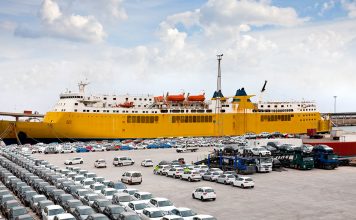Tesla, the car that lit up Twitter on Monday mid-morning, has left tongues wagging among car lovers in Kenya.
However, the viability of owning one is still relatively low in a country where the dream of setting up charging stations is yet to be realised.
In a video that was also widely shared across other social media platforms, the Tesla Model X is seen rhythmically flashing its headlights as its falcon wings flap in tandem.
Children are seen enjoying the tune from the car parked at a leafy suburb in Nairobi. And netizens could not hide their admiration for the vehicle, which Tesla chief executive Elon Musk calls “a special work of art” that he likened to the “Faberge egg of cars” last year.
“It is an incredible vehicle, and probably nothing like it will ever be made again and maybe it shouldn’t,” he said.
While electric cars have been in the country since 2016, the Tesla Model X is a rare automobile on Kenyan roads. Many adore it for its futuristic features that are largely designed using artificial intelligence, coupled with its fast speed, low maintenance costs and higher durability compared to petrol or diesel cars.
Those aspiring to own the sedan should prepare to part with Sh9 million for the five-seater and cough Sh4 million more for a seven-seater.
Since its release in 2015, the sedan has sold more than 150,000 units worldwide, sneaking its name into the Guinness Book of Records for “the heaviest tow by an electric production passenger vehicle” after it towed a Boeing 797-9 that weighed 130,000 kilos for a distance of 300 metres.
While most car owners, who spoke to the Business Daily, said they would love to drive what they called the “magical car”, the hurdles of high initial cost and the lack of sustainable charging stations in Kenya dim their chances of ever riding the sedan.
“It is a good step for one Kenyan to show us that it is possible to import such a car. But the cost is too high for most of us. I know we have a few charging stations for hybrid cars, but are they up to the standards required by the Tesla charging system?” wondered Solomon Ngugi, a Nairobi-based investor in the motor industry.
Though Kenya Electricity Generating Cimoany (KenGen) announced last August that it plans to bolster its revenue by installing electric car charging systems, the project is still in the pilot stage. Viable testing can only be experienced next year.
“On innovation, we are exploring to participate in manufacturing. We have also rolled out charging infrastructure with a pilot within our premises,” said David Muthike, KenGen’s strategy and innovation director during a webinar.
He also revealed that the firm is positioning itself to rollout electric public service vehicles as the world moves towards clean energy. “The case to have electric vehicles is there. KenGen is ready to support that with renewable energy,” he said.
However, according to Ramah Rugut, chief executive of carpooling service Twende, the disruptive potential of electric cars in Kenya is hampered by poorly planned infrastructure.
“What we have is an infrastructure that is not futuristic. Most petrol stations have little space because they never thought that in future electric cars would be the real deal. A petrol car refuels in five minutes, but an electric car takes hours. Where is space for future cars to line up for charging?” he remarked.
Mr Rugut believes that though a possibility of converting parking zones in urban areas and basements of corporate buildings exists, urban planners need to take the idea of well-planned charging bays seriously.
“Even the residential building where we live can have charging systems for tenants. We can also have them along major highways without congestion or carwash areas. However, we need the regulatory agencies to prepare policies and guidelines for the standardisation of quality and cost of charging,” he told Digital Business.
Some of the companies pioneering the electric car revolution in Kenya are Hungarian company, Nopia Ride, which launched a fully electric taxi business three years ago and Kenyan-owned Knights Energy which has been doing extensive research on the future of electric vehicles and sustainable energy in the country.
Knights Energy has since installed a charging station at Karen’s Jubilee Centre in Nairobi. At Two Rivers Mall and Thika Road Mall, you will find others, which Nopia maintains.
To help minimise the high carbon print in Kenyan roads, Stimaboda has also launched in Nairobi to provide more electric taxis and motorcycles to riders.
SOURCE: https://www.businessdailyafrica.com/bd/corporate/technology/tesla-excites-netizens-kenya-geared-up-for-e-cars-2731008



![Top 20 Used Cars to Avoid Buying in Kenya – [PHOTOS]](../../../blog/wp-content/uploads/2013/11/top-used-unreliable-cars-to-avoid2-80x60.jpg)

![Top 20 Used Cars to Avoid Buying in Kenya – [PHOTOS]](../../../blog/wp-content/uploads/2013/11/top-used-unreliable-cars-to-avoid2-100x70.jpg)



